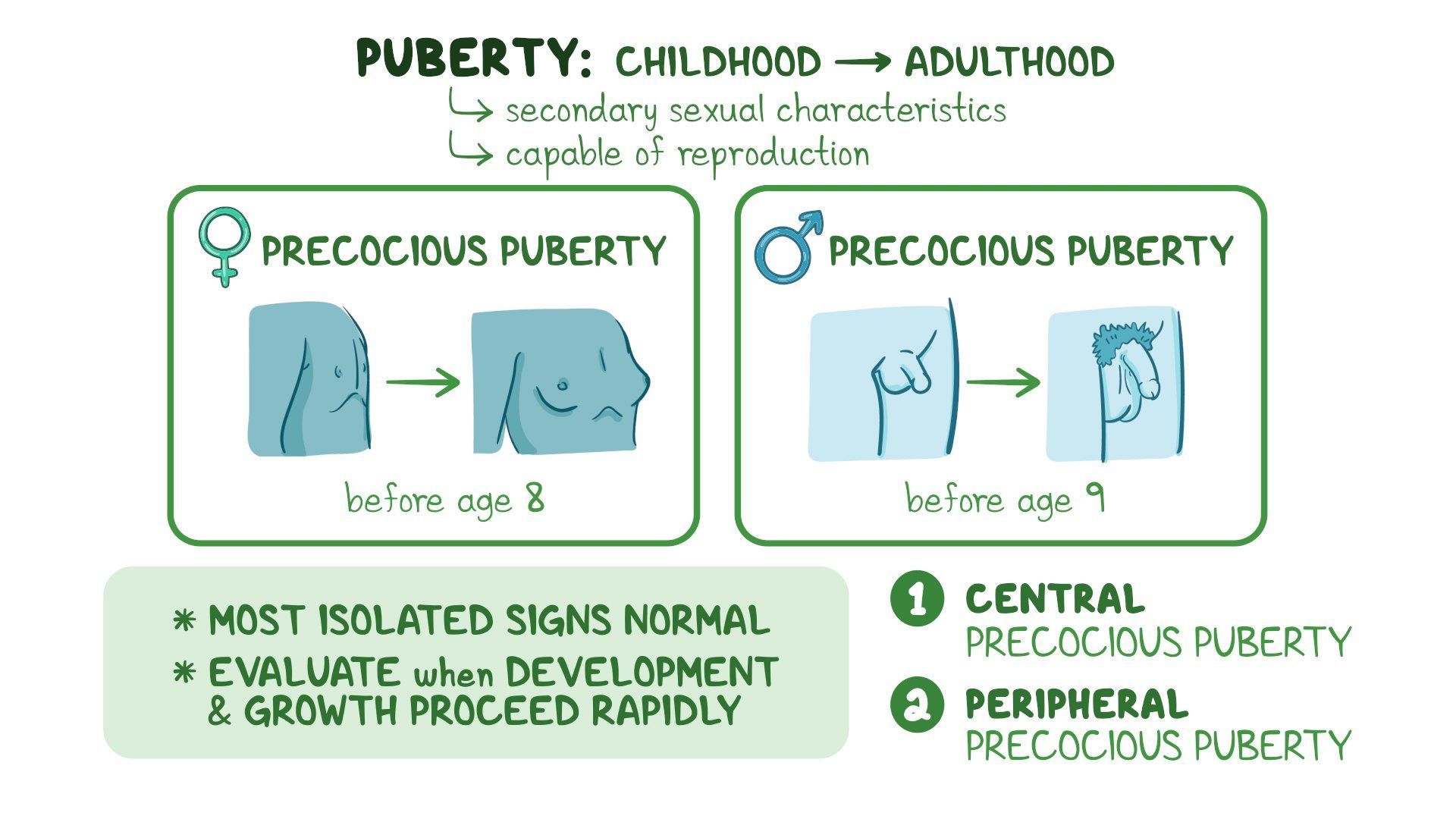TOPLINE: Patients diagnosed with central precocious puberty (CPP) — a condition in which physical changes related to pubertal development occur earlier than usual — had a nearly 50% elevated risk of developing psychiatric disorders, including depression and anxiety, and the incidence of both depression and attention-deficit/hyperactivity disorder (ADHD) remained persistently elevated for years after diagnosis.
METHODOLOGY: Researchers in Germany conducted a population-based, retrospective cohort study using health insurance data (from January 2010 to June 2023) to evaluate the association between idiopathic CPP and the development of psychiatric disorders. They included 1094 patients with idiopathic CPP (91.3% girls) and individually matched them with 5448 control individuals without the condition (matched for sex, birth year interval, insurance period, and obesity); participants had continuous insurance coverage for at least 2 years during the study period. The exposure of interest was a diagnosis of CPP, and psychiatric outcomes evaluated included depression, anxiety disorders, oppositional defiant and conduct disorders, ADHD, self-harm behaviours, and substance use disorders. TAKEAWAY: Patients with CPP had a higher risk for any mental disorder than their matched control individuals (adjusted risk ratio [aRR], 1.48; 95% CI, 1.31-1.67). They also showed a higher risk for depression (aRR, 1.73; 95% CI, 1.37-2.20), anxiety disorders (aRR, 1.45; 95% CI, 1.16-1.82), oppositional defiant and conduct disorders (aRR, 1.76; 95% CI, 1.39-2.23), and ADHD (aRR, 1.53; 95% CI, 1.27-1.86) than matched control individuals. Temporal trends showed that incidence rates of oppositional defiant and conduct disorders were elevated even before the diagnosis of CPP; however, rates of depression and ADHD remained persistently high for up to 8 years after the initial diagnosis. IN PRACTICE: “Caretakers of patients with CPP should actively explore psychological symptoms and facilitate early intervention to influence lifetime trajectories of this vulnerable patient population positively. Because our findings indicate long-term sequelae of CPP on mental health, caretakers should be vigilant even after normalization of pubertal development,” the authors wrote.
SOURCE: This study was led by Lars Dinkelbach, MD, University Hospital Essen, University of Duisburg-Essen, Essen, Germany. It was published online on June 23, 2025, in JAMA Network Open.
LIMITATIONS: This study relied on physician-reported diagnoses in a population-based setting and on routine health insurance data, which limited its ability to control for confounding variables. The precision of age-related analyses reduced due to data-anonymity policies of the insurance data. The small number of cases with self-harming behaviours or substance use disorders limited the ability to conclude any association.
DISCLOSURES: This study was financially supported by a fellowship of the University Medicine Essen Clinician Scientist Academy, which was supported by the German Research Foundation and non-financially supported by the Gesellschaft für Wirtschaftlichkeit und Qualität bei Krankenkassen Service Plus AG. One author reported receiving grants from Gemeinsamer Bundesausschuss outside the submitted work.
This article was created using several editorial tools, including AI, as part of the process. Human editors reviewed this content before publication.

